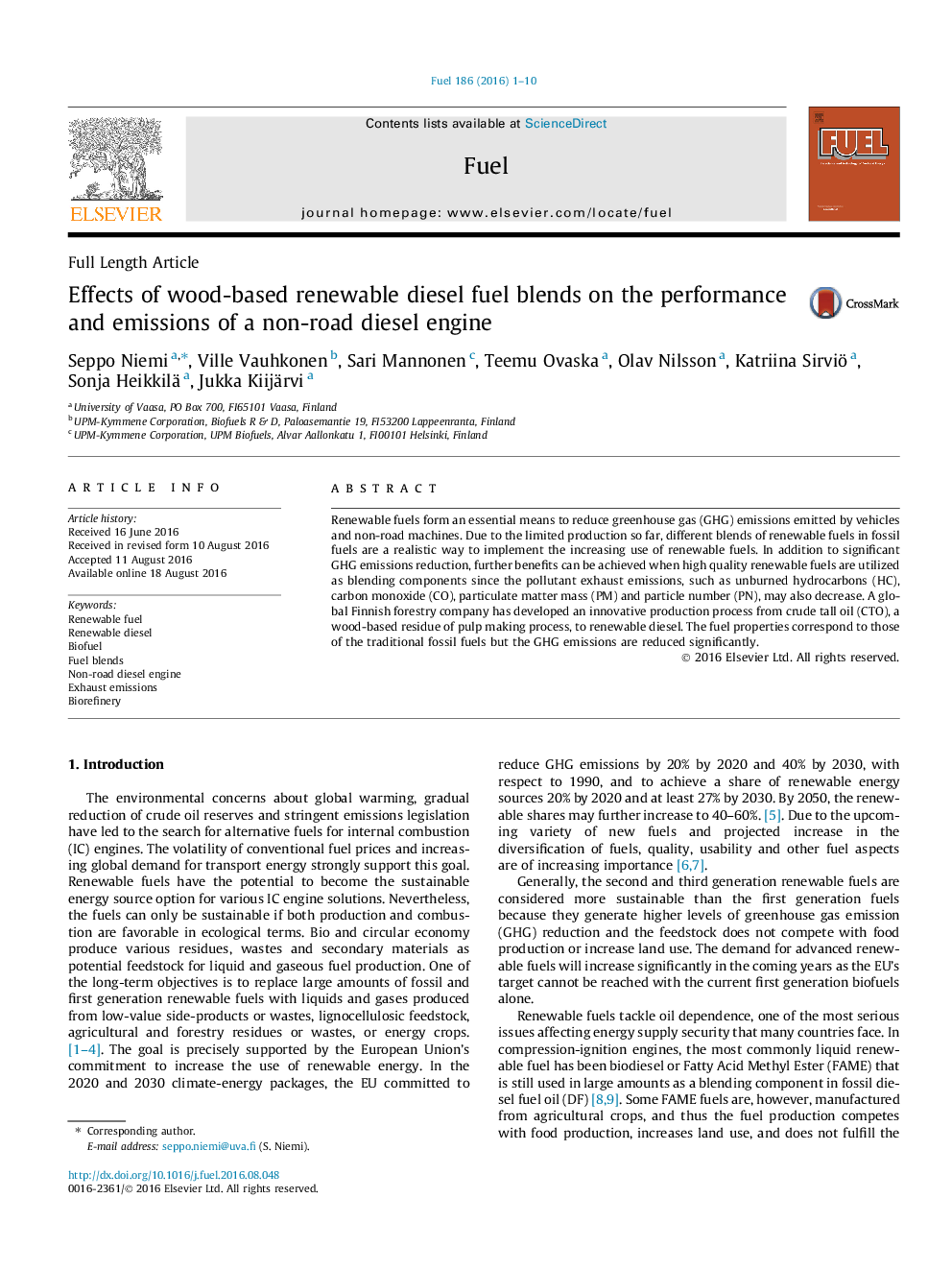| Article ID | Journal | Published Year | Pages | File Type |
|---|---|---|---|---|
| 6476002 | Fuel | 2016 | 10 Pages |
Renewable fuels form an essential means to reduce greenhouse gas (GHG) emissions emitted by vehicles and non-road machines. Due to the limited production so far, different blends of renewable fuels in fossil fuels are a realistic way to implement the increasing use of renewable fuels. In addition to significant GHG emissions reduction, further benefits can be achieved when high quality renewable fuels are utilized as blending components since the pollutant exhaust emissions, such as unburned hydrocarbons (HC), carbon monoxide (CO), particulate matter mass (PM) and particle number (PN), may also decrease. A global Finnish forestry company has developed an innovative production process from crude tall oil (CTO), a wood-based residue of pulp making process, to renewable diesel. The fuel properties correspond to those of the traditional fossil fuels but the GHG emissions are reduced significantly.
